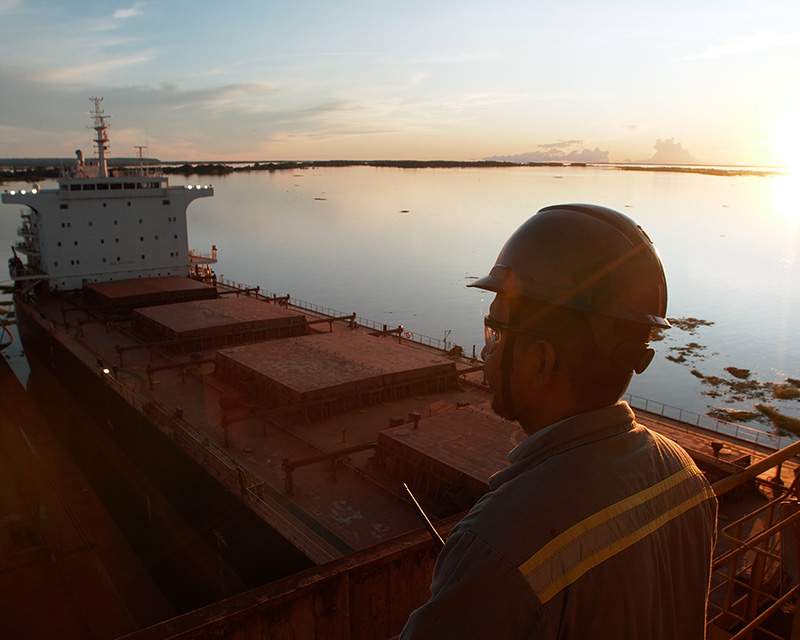June 14, 2023
Alcoa accelerates energy transition in Brazil with electrification of Juruti mine

As part of ongoing efforts to reduce GHG emissions, operations at Alcoa’s Juruti mine will soon begin a project to convert to renewable electricity sourced from the grid rather than diesel generators.
The three-year project is expected to cost $23 million (USD) and be completed in 2026. It is expected to reduce greenhouse gas (GHG) emissions by approximately 35 percent, while reducing the plant´s energy costs in the future by about 40 percent.
Currently, the power supply for Alcoa’s Juruti port and wash plant, located in Western Pará, Brazil, operate on diesel generators. The facilities are in an isolated area that is not currently connected to the electrical grid in Brazil.
The project, which aligns with Alcoa’s vision to reinvent the aluminum industry for a sustainable future, will connect Juruti’s facilities to the country’s electrical grid, known as the National Interconnected System (SIN).
Alcoa has signed a contract for the construction of a 51-kilometer transmission line and substation. Once complete, the project is expected to replace the operations power supply with electricity generated from hydroelectric sources, at a capacity of 10MW.
"The future of aluminum involves investing in renewable energy sources, such as hydroelectric power, as well as optimizing bauxite extraction and the entire production process,” said Otávio Carvalheira, President of Alcoa Brazil and Vice President, Operations Brazil & Middle East. “And of course, it also involves innovation, with technological improvements that are expected to enable expanded production while reducing GHG emissions.”
Alcoa aims to reduce scope 1 and 2 greenhouse gas (GHG) emissions intensity by 30 percent by 2025 and 50 percent by 2030, and the Company has an ambition to reach Net Zero GHG emissions across its global operations by 2050.
“In migrating from fossil fuel to electricity, we are not only reducing GHG emissions at the operations in Juruti but contributing to Alcoa’s ambition to reach net zero GHG emissions by 2050,” said Alfredo Duarte, Alcoa’s Energy Director in Brazil.
The move away from fossil fuels at Juruti builds on ongoing decarbonization efforts across Alcoa’s Brazilian operations and is part of an integrated strategy to further differentiate Alcoa. The Alumar smelter, which is in the process of being restarted, will be powered 100 percent by hydroelectric energy. Also, in 2022, Alcoa completed a press filtration project at Poços de Caldas, where bauxite residue is processed, reducing both land and water use.